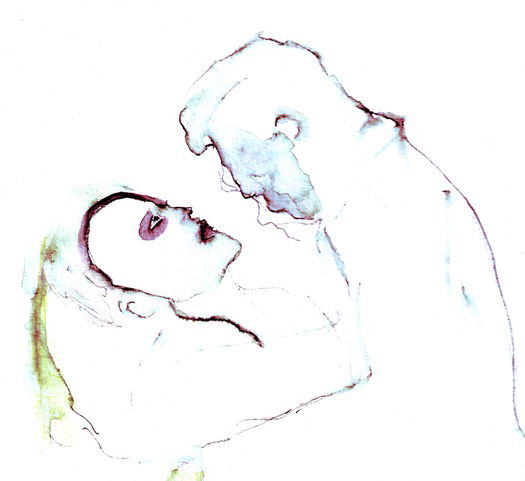
Solid Gold - single
I remember as a child once being selected from the choir by Mr. Manship, our elderly music teacher, to produce a solemn “A” on the Kratt Pitch Pipe.
He instructed me to pinch the metal disc’s centre tightly with index and thumb, and to form a tight embouchure.
I produced a clear even note for the choir to begin.
Hearing that recollection, my wife ordered me my own Kratt (a century-old company still making these little devices in New Jersey) as a gift.
In the studio, nicely weighted in my hand, I found its best tone.
I wondered: could it be multi-tracked into a very fine horn section?
Well, ‘Solid Gold’ became my bid to be the Coltrane of Kratt!
A valentine dedicated to my muse, she also indirectly and lightheartedly suggested the song's sunny lyric.
Recorded in Celestia, using a Gretsch hollow body, Yahama Bass, Logic Pro drum kit, and the Kratt tuner.
Released 10 February 2026.

Jacobean - EP+1
I pursue various paths in life, yet always with my music alongside: a recording studio, instruments, a wide sonic acquaintance, a private world.
What has prised open this particular musical box? A poetry snippet pinned for years in my study. I believed it was by George Herbert, the English metaphysical poet (1593-1633). Yet, combing his oeuvre for those verses, I couldn’t locate them.
That's how, very naturally, almost uncannily, I absorbed his poems “Virtue” and “Love (III)” into memory. Then they sprang, fully formed, into the songs heard here, as if laying in wait for a stray singer. Not long afterwards, “The Call” similarly slid under my fingers, his three perfectly balanced verses, that distinct Herbertian intimacy lending itself to spare settings and disinhibited emotions.
The elusive snippet? Eventually, I found it in “The Night” by next-gen metaphysical Henry Vaughan (1621-1695), a Welshman profoundly inspired by Herbert’s devotional poetry.
When a family member passed away unexpectedly in 2024, two of Vaughan’s most evocative stanzas emerged as the basis of this elegiac song expressing both mourning and reassurance. A bass line seemed right, adding gravitas beneath a vocal line pressed high in its register.
In those months I re-read John Donne (1572-1631), a life-long mentor to Herbert—these two poets asymptotically approached the sacred/secular frontier, yet from opposite directions. Biographer Katherine Rundell aptly describes the young Donne as the “Jim Morrison” of the Elizabethan era. His beloved “Song" is here infused with a nineteen-sixties vibe and a (baroquely danceable?) flute chaconne.
Herbert, accomplished lutenist and viol player, almost certainly would have known of Thomas Campion (1567-1620) even if their social circles didn't intersect. As a composer, producer of court masques, physician, and occasional spy, Campion the ‘rock star’ lutenist for a time commanded high fees in Continental courts. His stoic lyric “The Man of Life Upright” elicited a melody here that commended more ample musical forces.
With the Jacobeans running strong in me, I flew north to King James’s court in Scotland. There, Alexander Montgomerie’s “Sonnet LII” (Love lent me wings…), merged the artistic sublime with divine love, at least that is how I interpret these verses. The passionate Montgomerie (1545-1598) was in the northern avante garde of the talented poets in orbit around James.
This “EP+1”—as it exceeds by one minute, and one track, the 30-minute/seven-track limit—foregrounds the poets' verses. I’ve attempted to render their words intelligibly, but please read along to better grasp their subtle wordplay. This is poetry on the edge: of love, pandemic, New Worlds, new technologies, fossil fuel, tobacco, unstable politics, colliding faiths, rising censorship.
Four hundred years later, the Jacobeans remain keenly contemporary. That is the gist of “Jacobean”, the opening song, and it is the impulse for this release. MK 15 July 2025